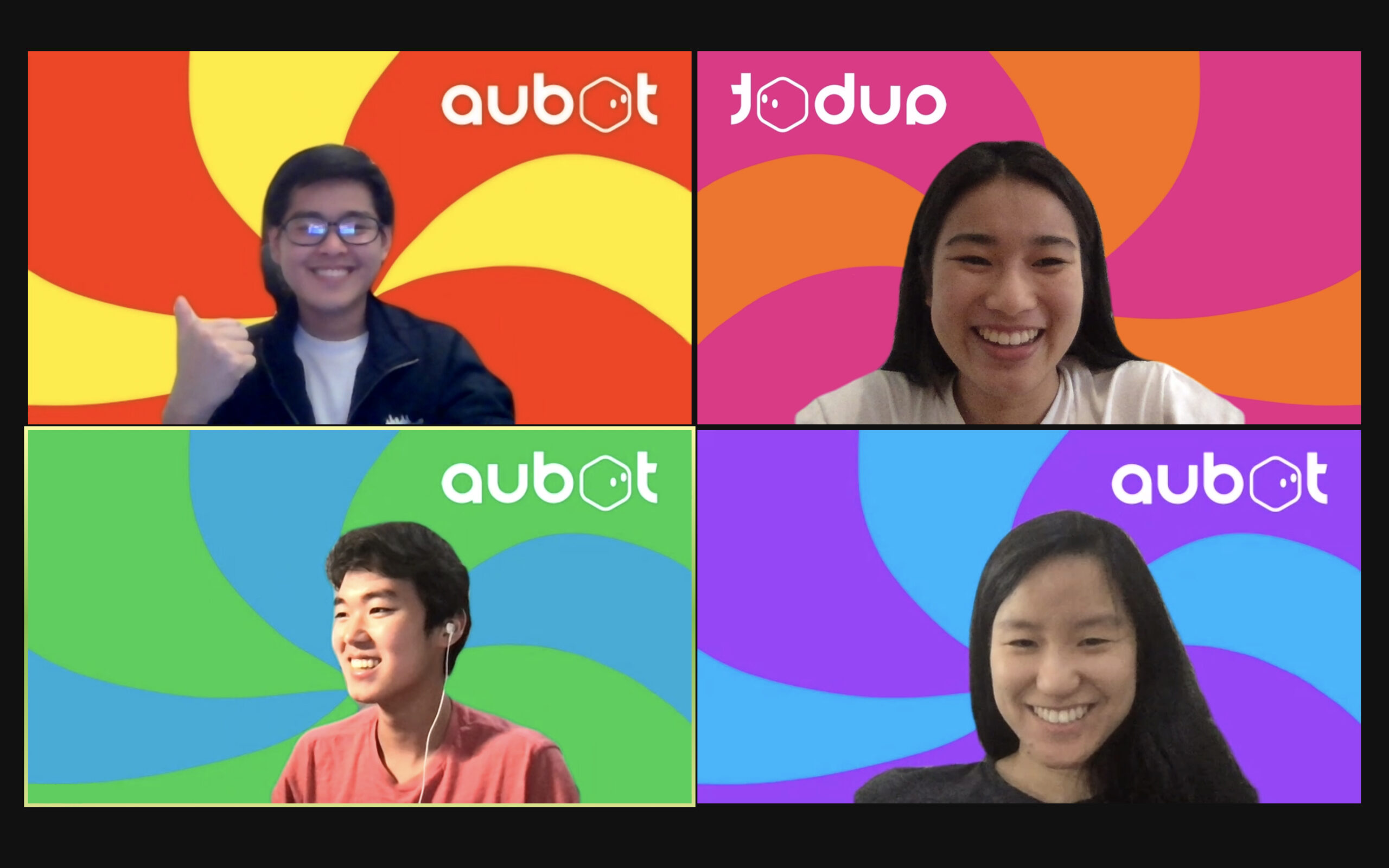Teaching Programming with LMS
By: Henghak Kun, SEAS ’24

Henghak (top left), along with fellow interns Mia Kan (top right) and Tony An (bottom left), and Aubot CEO Marita Cheng (bottom right) in a debrief after teaching a class.
Aubot – Australia
This past year has been difficult for many of us due to the challenges that Covid-19 produced. As I finish my freshman year at Penn Engineering, I would agree with most that the online format has taken away some of the normal freshman experience. Nevertheless, the amount that I have learned this past year is undoubtedly more than any year prior. As a computer science major, the courses that I took have pushed me to new heights as I gain the ability to think of the world algorithmically to solve problems that I couldn’t before. However, despite all that I have learned, in the back of my mind, I felt that there is something missing: real-world experiences.
Through the VIA program, I was connected to Aubot Pty Ltd, an Australian-based company that focuses on building robots to help people in their everyday lives. They have created a telepresence robot called Teleport that allows people to visit the workplace (or anywhere else) without actually having to be there in person. They are also working on a robotic arm, as well as the project that my fellow VIA interns and I are working on called the LMS. The LMS is an educational platform that teaches students programming with a slow progression so as not to overwhelm students. As many advisors at Penn emphasize, programming has become very relevant to any field of study in the modern world. Because of this, it is advised that students take at least one computer science course even if their major is not at all related to computer science. As technology continues to advance and the world becomes more digitized, it stands to reason that skills in computer science will only be more important. The LMS notes this trend and aims to teach skills in computer science to students early on. The goal is to teach students little by little so that it becomes very digestible. When I met the CEO of Aubot, Marita Cheng, we spoke for a long time about how important basic programming will be important in the future and how teaching children basic programming with the LMS will help them in any career they choose.
Coming to the LMS project, the curriculums for kindergarten to 5th grade have already been created and are currently in testing. Ms. Cheng has reached out to many schools in Australia and has scheduled for the interns to teach children about the LMS. Currently, we are teaching four classes of 1st and 2nd graders from Larapinta Primary School every week and we are also scheduled to teach other schools later this summer. Apart from this, the interns and I are also working on the Java curriculum of the LMS, which spans from grade 10 to grade 12.
This is quite different from anything that I have worked on so far and I am very excited about the future of LMS and what it does.
The Virtual Internships Abroad (VIA) program provides self-directed and motivated Penn undergraduate students the opportunity to gain a fully funded professional work experience over the summer with a global employer, with the added convenience of working remotely.